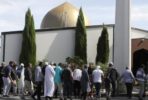LYON/SOUSSE/KUWAIT CITY — Terrorists carried out attacks in Tunisia, Kuwait and France yesterday (June 26), leaving a bloody toll on three continents with at least 63 dead, and prompting new concerns about the spreading influence of jihadists.

Tunisia was rocked by a brazen attack, when a gunman opened fire with his Kalashnikov at a beach resort in Sousse, killing at least 37 people, and wounding 36 others. He was killed by security forces.
It was the second major terrorist attack on the country’s vital tourism industry this year.
The Sousse attack comes after three Islamist gunmen killed more than 20 people, almost all of them tourists, in a mass shooting at the National Bardo Museum in Tunis in March.
The motive and identity of the attacker were not immediately clear. But Tunisian authorities have struggled to suppress a small but violent hard-line Islamist insurgency that has sprung up in the years since the Arab Spring political upheavals in 2011.
Meanwhile, the Islamic State claimed responsibility for an explosion at a Shiite mosque in Kuwait City. At least 25 people died and more than 200 were wounded in the suicide bomb attack.
Worshippers were kneeling in prayer when the bomber walked into the Imam Sadeq Mosque and detonated explosives, destroying the walls and the ceiling. More than 2,000 people were praying in the mosque.
After the attack, ISIS said in a statement posted on social media that it had targeted a “temple of the rejectionists” — a term it generally uses to refer to Shiites, whom it regards as heretics.
A tiny, wealthy oil exporter, Kuwait has been largely insulated from the mayhem in the region, and open tension between Sunnis and Shiites is not common.
But the assault in Kuwait City resembled others launched by ISIS recently on Shiite mosques in neighbouring Saudi Arabia, prompting many to believe that ISIS is seeking to incite a sectarian war between Sunnis and Shiites.
The day of horror began in France, where a man stormed an American-owned industrial chemical plant in the town of Saint-Quentin-Fallavier near the city of Lyon, decapitated one person and tried unsuccessfully to blow up the factory. Two people were also injured during the attack.
Speaking from a European Union summit in Brussels, French President Francois Hollande described the incident as a terrorist attack and said all measures would be taken to stop any future strikes on a country still reeling from Islamist assaults in January.
France has been on high alert since January after attacks against the satirical newspaper Charlie Hebdo, a kosher grocery store and a policewoman that left 20 people dead in the Paris region, including three Islamic extremist attackers.
A car rammed the factory gate and ploughed into gas canisters, touching off an explosion. A decapitated body and flags with Arabic writing were found at the entrance. The severed head at the factory’s entrance appeared to be an echo of the Islamic State’s practice of beheading prisoners and displaying their heads for all to see.
French security officials say the man whose severed head was found hanging at the gate of the factory has been identified as a local businessman, who might have been the attacker’s employer. He is believed to have been killed before the explosion.
One of the attackers, who is known to French intelligence services and had links with Salafists – a fundamentalist doctrine within Sunni Islam, was arrested. His wife was also taken in by the authorities while authorities were questioning at least one other suspected accomplice.
There was no immediate indication that the three attacks were coordinated. But the strikes came at roughly the same time, and just days after the Islamic State called for such operations during the Muslim holy month of Ramadan.
“It appears to be an effort to launch and inspire a wave of attacks across three continents, reminiscent of Al Qaeda’s simultaneous multiple attacks of the past,” said Bruce O Riedel, a former Central Intelligence Agency officer who is a counterterrorism expert at the Brookings Institution in Washington.
“The Kuwait operation is especially dangerous, as this is the Islamic State’ first operation in a gulf state,” Mr Riedel said in an email the New York Times. “The others will be deeply alarmed,” he added, referring to member countries in the Gulf Cooperation Council.
While investigations continued in each of the countries, the quick succession of the attacks raised the possibility that the Islamic State, which has seized control of territory in Iraq and Syria, has successfully inspired sympathisers to plan and carry out attacks in their own countries.
“Muslims, embark and hasten toward jihad,” said the Islamic State’s spokesman, Abu Mohammed Adnani, in an audio message released earlier this week. “O mujahedeen (guerrilla fighters) everywhere, rush and go to make Ramadan a month of disasters for the infidels.”
United States intelligence and counterterrorism officials were scrambling yesterday (FRI) to assess the connections, if any, between the attacks in France, Kuwait and Tunisia. Officials said that if the assessment found that the attacks were linked, officials would seek to determine whether the Islamic State had actively directed, coordinated or inspired them.
Source: www.todayonline.com







